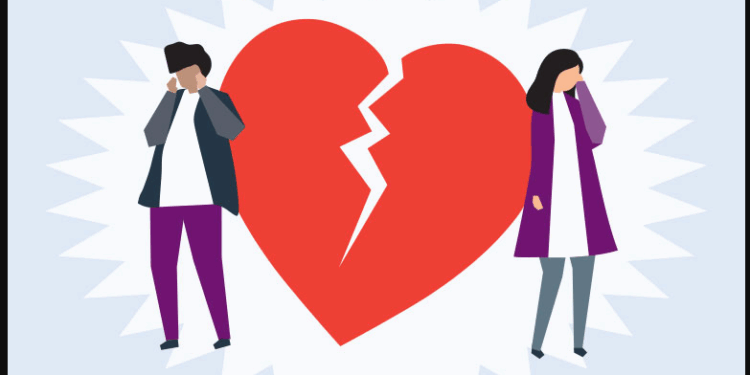A breakup is not merely an emotional experience; it triggers profound psychological and neurological changes. Understanding this internal struggle is crucial for navigating the difficult period and promoting genuine healing.
The Mind’s Journey Through a Breakup
ICYMI: Ablekuma North Rerun: MCE Defends Process, Denies Poster Sabotage Claims
- Initial Shock: Numbness and Denial
In the wake of a breakup, especially if unexpected, your mind’s defense mechanism—shock and denial—takes over. You may find yourself thinking, “This can’t be happening,” or hoping for a reconciliation. This numbness serves as a buffer against overwhelming pain, allowing time to process the significant shift. - Chemical Withdrawal: The Brain’s Crash
Love floods the brain with “feel-good” chemicals: dopamine, oxytocin, and serotonin. A breakup halts this flow, leading to withdrawal-like symptoms. Dopamine levels drop, often resulting in feelings of depression and emptiness. The absence of oxytocin can trigger intense loneliness and anxiety, while cortisol spikes, increasing stress and physical symptoms like fatigue and tension headaches. - Emotional Turmoil: From Anger to Bargaining
As denial fades, a wave of emotions hits. Anger may surface, directed at your ex, yourself, or the situation itself. Profound sadness often accompanies this, leading to crying spells and withdrawal from social activities. You may also engage in bargaining, replaying “what if” scenarios in a desperate attempt to regain control and ease the pain. - Cognitive Fog: The “Broken Brain” Feeling
Emotional distress and chemical imbalances can impair cognitive functions, making it hard to concentrate and make decisions. Thoughts about your ex may intrude constantly, and the prefrontal cortex—responsible for rational thought—may experience decreased activity. Obsessive thoughts can reopen emotional wounds, creating a sense of confusion and mental fog. - Identity Crisis: Who Am I Now?
A deep romantic relationship often becomes part of your identity. Its end can lead to a temporary identity crisis, raising questions about who you are as a single individual. Established routines may crumble, friendships can become awkward, and future plans may feel uncertain, leaving you feeling lost. - Physical Manifestations: The Body’s Pain
The emotional pain of a breakup is not just mental; research shows that the brain processes emotional pain similarly to physical pain. This mind-body connection explains why you may experience real physical symptoms, like chest heaviness, stomach issues, or muscle tension. It underscores how deeply a breakup affects your entire being.
While navigating a breakup is challenging, your mind is naturally inclined toward healing. With time and self-compassion, the intensity of these feelings will lessen. You will gradually move toward acceptance, redefine your identity, and open yourself to new possibilities and personal growth. Understanding these internal processes can encourage healthy coping mechanisms and foster resilience.
SOURCE: PULSE GHANA
























